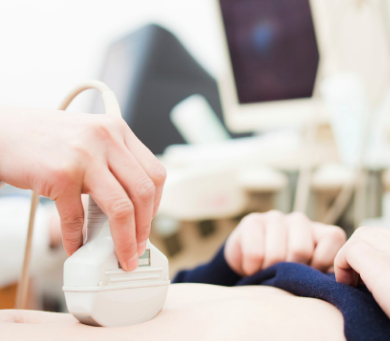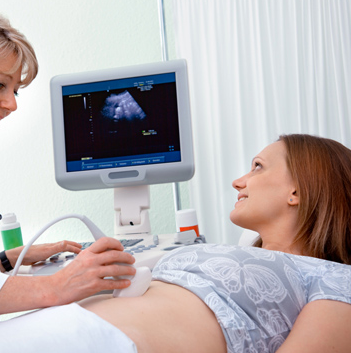What you need to know about Abdominal Ultrasound Procedure
Contents
- 1 What you need to know about Abdominal Ultrasound Procedure
- 2 What does the Procedure Involve?
- 3 How Long Should I Stay at my Destination?
- 4 What’s the Recovery Time?
- 5 What About Aftercare?
- 6 What’s the Success Rate?
- 7 Are there Alternatives to an Abdominal Ultrasound Procedure?
- 8 What Should You Expect Before and After the Procedure
An abdominal ultrasound is a noninvasive procedure performed to view structures inside the abdomen. This includes the pancreas, gallbladder, liver, bile ducts, spleen, appendix, stomach, large and small intestine, bladder, and abdominal aorta.
Using high-frequency sound waves, an abdominal ultrasound can show a quick, real-time visualization of the abdominal organs and structures from outside the body. It can also show the blood flowing through blood vessels. This test is commonly used to view and examine the fetus in pregnant women. However, it also has numerous other clinical uses. Your doctor may use an abdominal ultrasound to diagnose the following conditions:
-
Abdominal pain
-
Kidney stones
-
Liver disease
-
Gallstones
-
Abdominal aortic aneurysm
-
Appendicitis
-
Fluid in the abdominal cavity
-
Inflammatory conditions, such as pancreatitis or appendicitis
-
Pyloric stenosis
-
Hernia
-
Abdominal growths, such as tumors
-
Cancer.
Abdominal ultrasound is also the preferred screening method for an abdominal aortic aneurysm. Doctors usually recommend this procedure to screen for an abdominal aortic aneurysm in men aged 65 to 75 who smoke or used to smoke cigarettes.
Besides, an abdominal ultrasound may also be used to help guide your doctor during certain procedures, such as during an abdominal biopsy or to help your doctor drain fluid from an abscess or fluid.

What does the Procedure Involve?
Before an abdominal ultrasound scan, your doctor may advise you to stop eating or drinking for up to several hours before the procedure starts.
An abdominal ultrasound scan is usually performed by a trained technician (sonographer).
During the procedure, you will have to remove any jewelry or other objects that might interfere with the scan. You may be asked to change into a hospital gown as well. Then, you will lie on your back or side on an examination table. The position depends on the specific area of the abdomen that needs to be examined. The technician will apply a special lubricating gel to your abdomen. This gel works with the ultrasound device (a transducer) to provide better images by preventing air pockets from forming between the transducer and the skin.
The technician will then place the transducer on your abdomen. High-frequency sound waves are sent through your body by the transducer. The human ear cannot hear these waves as they are too high-pitched. However, the waves echo as they hit a dense object, such as an organ in your abdomen or a baby.
The transducer will be moved around the area to create a better image. It may press lightly on the abdomen, during the procedure you should not feel pain or be uncomfortable. Once the technician is finished, any remaining gel will be cleaned from your abdominal skin.
How Long Should I Stay at my Destination?
An abdominal ultrasound is an outpatient procedure, so you should be able to leave the hospital on the same day of the procedure. The ultrasound images will be sent to a radiologist, who will interpret the images. Therefore, plan to stay in the area for at least 3 days as you may need to attend a follow-up appointment to discuss the result with your doctor.
What’s the Recovery Time?
You may be able to resume your usual diet and return to your normal activities straight away after an abdominal ultrasound unless your doctor advises you differently.
What About Aftercare?
No special aftercare is required after an abdominal ultrasound. Depending on your particular situation, your doctor may give you additional aftercare instructions after the procedure.
What’s the Success Rate?
Abdominal ultrasounds have a high accuracy and sensitivity rate. According to a study, its accuracy is highest for splenic masses (100%) and for aortic aneurysm (88%). If the results of abdominal ultrasound show that you a problem, such as an aneurysm, is present, you and your doctor will decide on a management or treatment plan.
Certain factors or conditions may interfere with the accuracy rate of an ultrasound, which includes:
-
Food inside the stomach
-
Severe or morbid obesity
-
Excess intestinal gas
-
Barium, which is a liquid that you swallow in some tests that can help your doctor see your gastrointestinal tract and stomach, within the intestines from a recent barium procedure.
Abdominal ultrasound is highly unlikely to cause any harm or negative effects. According to the Food and Drug Administration (FDA), it has “an excellent safety record.”
Are there Alternatives to an Abdominal Ultrasound Procedure?
The main alternative to abdominal ultrasound is an abdominal CT scan, which is a specialized X-ray that can show images of the inside of your abdomen. During this procedure, you will lie on a table that slides into the CT scanner. The CT scanner circles your body and sends pictures of the inside of your abdomen to a computer. Similar to an abdominal ultrasound, it can show numerous problems within the abdomen. However, unlike an abdominal ultrasound, an abdominal CT scan carries some potential risks.
What Should You Expect Before and After the Procedure
Before abdominal ultrasound, your doctor may suspect that you have a medical condition in your abdomen. After the procedure, your doctor may be able to rule out problems and make a diagnosis. From the results, you and your doctor can discuss the best management or treatment plan for you. For pregnant women, abdominal ultrasound can confirm that the fetus is alive. It can also determine gestational age, determine the number of fetuses, and identify placental structures.
For an in-depth analysis of an Abdominal Ultrasound Procedure, watch this short video.
To check prices or to book an Abdominal Ultrasound Procedure, in Thailand or anywhere else in the world, head on over to MyMediTravel now!

